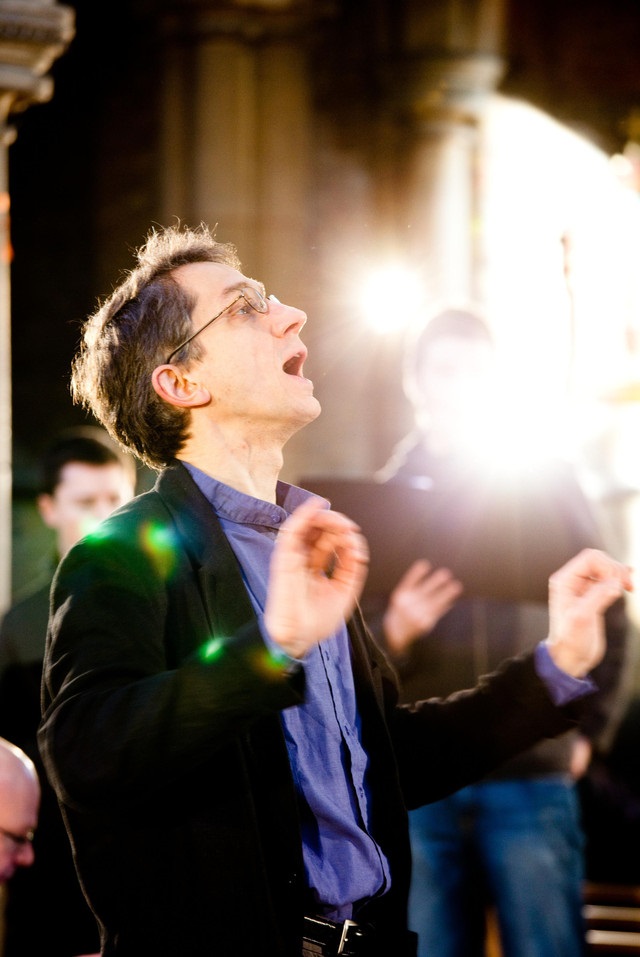
THE 24 has grown. When first taken over by Robert Hollingworth, it was largely a choir of graduate students. It has since been amalgamated with the university’s chamber choir and grown to its present 33 members, a size that arguably takes it beyond the usual ‘chamber’ dimensions.
It appeared here with strong support from Ampleforth College Chamber Choir and Huntington School Secret Choir. The menu, served to a full house, was a nourishing pot-pourri ranging from the Renaissance to the present day, all a cappella.
Johann Christoph Bach belonged to the generation before JSB and is widely considered to be the great man’s most talented forebear. The double choir motet Lieber Herr Gott, dating from 1672, has a continuo part but was given here unaccompanied.
Its opening phrase says “wecken uns auf” (wake us up), an apt injunction given that the start was something of a scramble. But it settled into a comfortable stride after its central tempo-change.
In contrast, Alonso Lobo’s penitent motet Versa In Luctum (Turned To Mourning) was much more shapely. For Alma Redemptoris Mater, by his Spanish compatriot and almost exact contemporary Victoria, the school choirs joined the fray, bringing the total to more than 70 voices. Yet the blend was excellent and Hollingworth had the singers in the palm of his hand.
In two madrigals by Thomas Tomkins, we heard the 11 members of the UK’s only MA course in solo-voice ensemble singing, a vivid sextet in Oft Did I Marle (marvel) and a gorgeously mournful quintet in Too Much I Once Lamented.
Either side of the interval, The 24 was back at full strength. It revelled in the lush harmonies of three of Schumann’s double-choir songs, Op 141. The last two had elements of prayer, both ending with ‘Amen’ cadences, but the last – a setting of Goethe’s Talismane – was much the most effective, delivered crisply but with a tender final plea.
There was exciting propulsion in Gibbons’s O Clap Your Hands and transparency in Tavener’s Hymn To The Mother Of God. Less telling were motets by Kenneth Leighton and Joanna Marsh, although the latter – a setting of Julian of Norwich’s All Shall Be Well – had a welcome sense of triumphal love at its close.
In this exalted company it came as a surprise to hear the calmly confident account of Stanford’s Justorum Animae (The Souls Of The Righteous) delivered by the Ampleforth choir under Roger Muttitt, with ‘non tanget illos’ – the torment of death ‘shall not touch them’ – given special emphasis and the peaceful ending beautifully floated.
With the combined forces reassembled, Elgar’s orchestral Go, Song Of Mine was never going to emerge with much clarity, although its ending was forceful enough. Will(iam) Campbell’s take on Vaughan Williams’s much-loved hymn-tune to Come Down, O Love Divine, however, was lovingly handled, starting out in left field and gradually moving towards more traditional harmonies, as the tune gained shape: a variation in reverse. It made an amusing end to a thoroughly invigorating evening.
Review by Martin Dreyer
